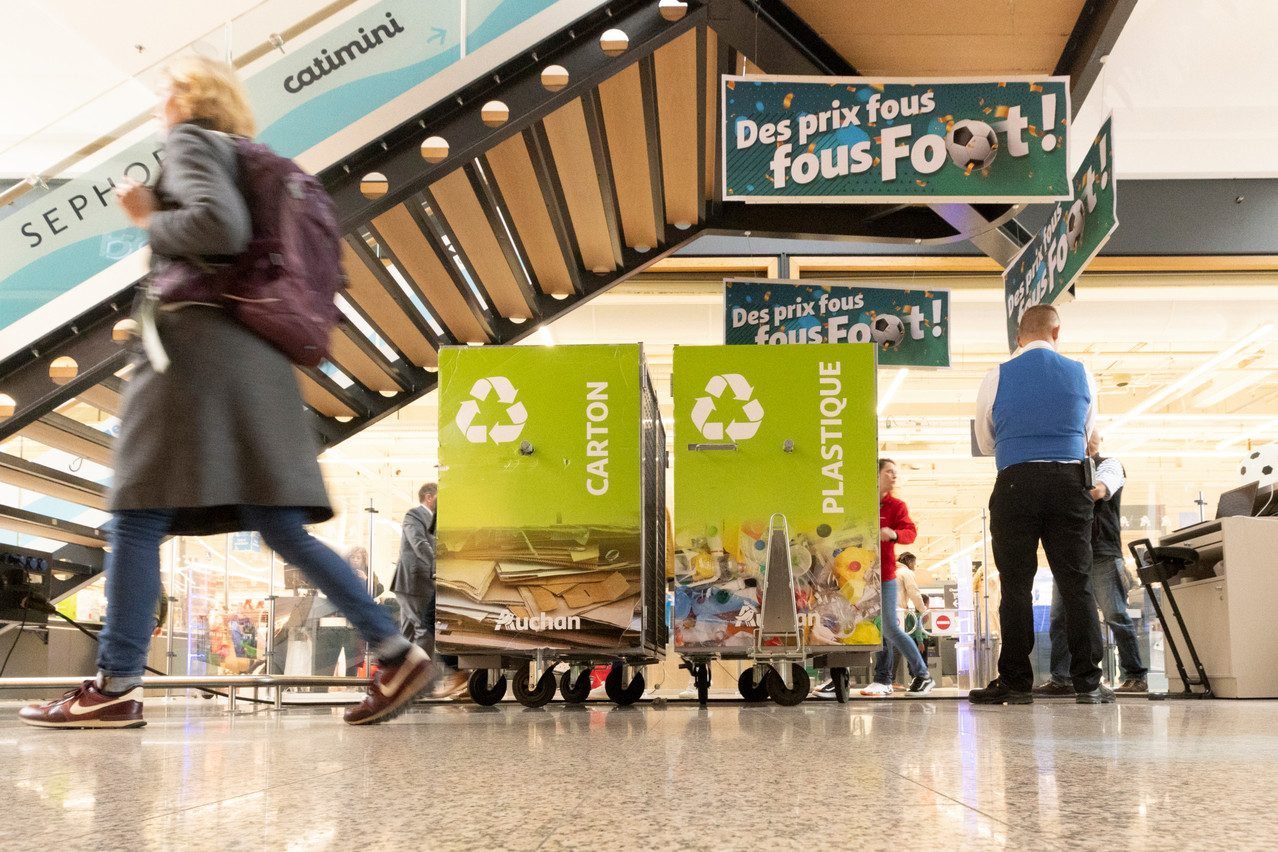Every three years, the environment ministry carries out an analysis of general waste thrown away in the country’s grey bins to assess if measures to reduce litter work and what people throw away.
The latest study from 2021-2022 shows that households threw away 163kg of waste per person, the equivalent of 103,600 tonnes of waste last year. This was down from 223kg just under a decade ago in 2013 despite the population growing 19% over the same period.
“We are going in the right direction,” said Stephanie Goergen of the environment administration during a press conference on Friday. “It doesn’t mean we produce less waste in Luxembourg, but that we sort it better.”
Around half of the waste could either have been avoided or the materials could have been reused and recycled, she said.
Out of 46kg of organic waste, 10kg consisted of food leftovers and unopened packaged goods, with some 2% of that still within the best before date.
For the study, 19.34 tonnes of black bin waste from 15 communes were sorted by hand.
Waste collection is the responsibility of communes and they apply different systems of payment. While some municipalities still charge residents based on the size of their bin, others have switched to fees based on the weight of waste thrown out. In these communes, people throw away around 52% less waste in their grey bins, Goergen said.
There is no evidence that there is more fly-tipping or waste being thown away in public bins in these communes, she said.
With single-use plastic bags going out of style, the study concluded that around three million paper bags were thrown out last year instead of being recycled. In addition to 29kg of paper waste, another 26kg of plastic waste ended up in the grey bins, including items that can be recycled in the Valorlux blue bags.
The first measures of waste laws voted into force last year became applicable at the start of January. Supermarkets larger than 400m2 must provide a collection point at check-out for packaging purchased at the shop.
Restaurants can also no longer offer single-use cutlery or crockery to customers eating in. And also at public events, including village fêtes, markets or sports matches, single-use plastic items have been banned.
“It’s about tackling the root of the problem,” said environment minister Joëlle Welfring.
The government in 2019 launched a zero-waste strategy, following this up in 2021 with a circular economy strategy.
